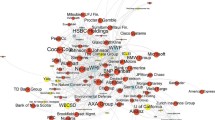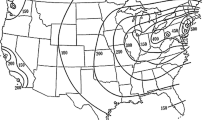Conclusion
Received CU theory proposes the superiority of a UTR over a CU; it has, therefore, long been held that a CU is an irrational trade policy. WW have maintained that consideration of the possible gains from reciprocal tariff reduction can restore the rationality of CUs. Their argument has been increasingly accepted by recent writers on international economics.
The purpose of this paper has been to show the limitations of the reciprocity argument. First, in WW’s context the alleged CU is identical to a free trade equilibrium since a CET is unnecessary and in any case would be completely ineffective. Second, neither a CU nor a UTR may be an optimal policy. A CU may still be non-optimal policy because a discriminatory tariff on the other small country’s exports may be the best policy. Third, if countries behave myopically by exploiting unilaterally available gains from changes in trade policy, a CU is unlikely to be formed. If, however, they behave strategically and recognise the importance of reciprocity they may decide not to cooperate. Again, non-cooperation prevents the formation of a CU.
Zusammenfassung
Zollunion und Handelspräferenzen: Die (mangelnde) Bedeutung der Reziprozität. - Die Theorie der Zollunion behauptet, daß für kleine Länder einseitige und nichtdiskriminierende Zollsenkungen einer Zollunion vorzuziehen seien. Diese Behauptung ist vor kurzem mit der Bemerkung angegriffen worden, daß die Theorie die Vorteile aus gegenseitigen Zollsenkungen in einer durch Zölle verzerrten Welt vernachlässige. Dieser Aufsatz soll die Schwächen dieses neuen Arguments zeigen. Die dabei behauptete überlegenheit von Zollunionen wird aus einem Modell entwickelt, in dem die Partnerstaaten ausschließlich untereinander Handel treiben. Folglich gibt es dann aber auch keinen Bedarf für irgendeinen gemeinsamen Außenzoll, und das Handelsgleichgewicht kann nicht von dem unterschieden werden, das bei Freihandel herrschen würde.
Résumé
Unions douanières et commerce préférentiel: La (in)signifiance de réciprocité.- La théorie de l’union douanière suggère que pour des petits pays des réductions tarifaires unilatérales et non-discriminatoires sont préférables aux unions douanières. Cette thèse était récemment attaquée avec l’argument que dans un monde déformé par des tarifs la théorie ignore les gains d’une réduction tarifaire réciproque. Le but de cet article est de démontrer les défauts de ce nouvel argument. La supériorité prétendue des unions douanières est démontrée dans le contexte où les pays membres font le commerce exclusivement parmi eux. C’est pourquoi on n’ a pas besoin d’un tarif commun extérieur et l’équilibre de commerce ne peut pas Être distingué de l’équilibre de commerce libre.
Resumen
Uniones aduaneras y comercio preferencial: la (in)significancia de la reciprocidad. - La teoría de las uniones aduaneras postula que en el caso de países pequeños reducciones unilaterales de aranceles no discriminatorios son preferibles a uniones aduaneras. Esta proposición ha sido cuestionada recientemente alegándose que en un mundo distorsionado por aranceles la teoría ignora los beneficios de una reducción recíproca de aranceles. El objeto de este trabajo es mostrar los defectos de este nuevo argumento. La supuesta superioridad de las uniones aduaneras es compatible con un contexto en el cual los países miembros sólo comercian entre ellos. Por ello, no hay necesidad de un arancel externo comÚn y el equilibrio comercial es indistinto del de libre comercio.
Similar content being viewed by others
References
Berglas, Eitan, “The Case for Unilateral Tariff Reductions”.The American Economic Review, Vol. 73, 1983, pp. 1141–1142.
Cooper, C., B. Massell, “A New Look at Customs Union Theory”.Journal of Political Economy, Vol. 75, 1965, pp. 742–747.
Hine, R.C.,The Political Economy of European Trade. Brighton 1985.
Krauss, Melvyn, “Recent Development in Customs Union Theory”.Journal of Economic Literature, Vol. 10, 1972, pp. 413–436.
Nicolaides, Phedon,Preferential Trading with Endogenous Tariffs. Geneva 1986.
Winters, L. Alan,International Economics. London 1985.
Wonnacott, Gordon Paul, Ronald Wonnacott, “Is Unilateral Tariff Reduction Preferable to a Customs Union?”The American Economic Review, Vol. 71, 1981, pp. 704–714.
-, -[1984a],The Customs Union Issue Reopened. University of Maryland, 1984, mimeo.
—, [1984b], “How General is the Case for Unilateral Tariff Reduction?”The American Economic Review, Vol. 74, 1984, pp. 491–493.
About this article
Cite this article
Nicolaides, P. Customs unions and preferential trading: The (in)significance of reciprocity. Weltwirtschaftliches Archiv 123, 488–495 (1987). https://doi.org/10.1007/BF02707757
Published:
Issue Date:
DOI: https://doi.org/10.1007/BF02707757




